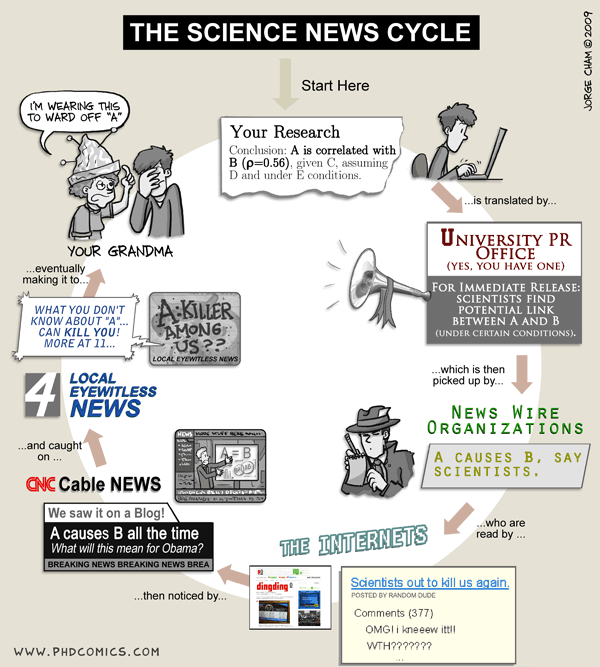Olm the Water King
across the universe
- Joined
- Aug 12, 2014
- Messages
- 1,455
- MBTI Type
- INFP
- Enneagram
- 459
- Instinctual Variant
- sx/so
How our botched understanding of 'science' ruins everything
How our botched understanding of 'science' ruins everything
Pascal-Emmanuel Gobry
...This method of doing science was then formalized by one of the greatest thinkers in history, Francis Bacon. What distinguishes modern science from other forms of knowledge such as philosophy is that it explicitly forsakes abstract reasoning about the ultimate causes of things and instead tests empirical theories through controlled investigation. Science is not the pursuit of capital-T Truth. It's a form of engineering — of trial by error. Scientific knowledge is not "true" knowledge, since it is knowledge about only specific empirical propositions — which is always, at least in theory, subject to further disproof by further experiment. Many people are surprised to hear this, but the founder of modern science says it. Bacon, who had a career in politics and was an experienced manager, actually wrote that scientists would have to be misled into thinking science is a pursuit of the truth, so that they will be dedicated to their work, even though it is not.
Why is all this ancient history important? Because science is important, and if we don't know what science actually is, we are going to make mistakes.
The vast majority of people, including a great many very educated ones, don't actually know what science is.
If you ask most people what science is, they will give you an answer that looks a lot like Aristotelian "science" — i.e., the exact opposite of what modern science actually is. Capital-S Science is the pursuit of capital-T Truth. And science is something that cannot possibly be understood by mere mortals. It delivers wonders. It has high priests. It has an ideology that must be obeyed.
...




